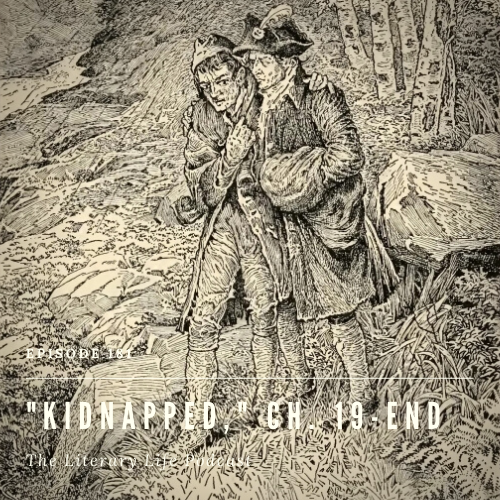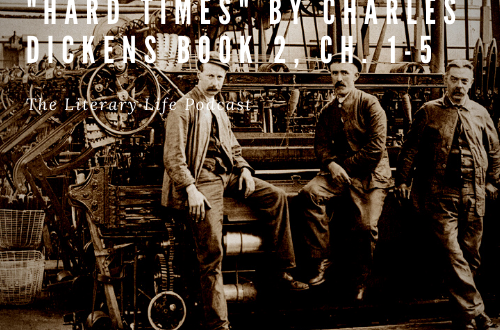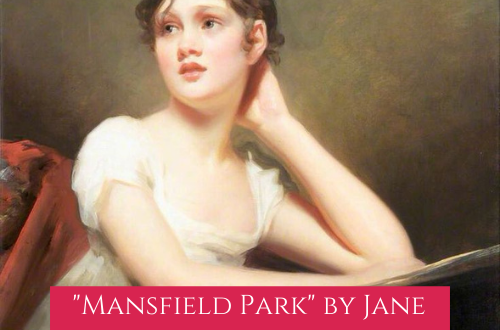
Episode 181: “Kidnapped”, Ch. 19-End
Welcome back to The Literary Life Podcast and the final episode in our series on Robert Louis Stevenson’s Kidnapped. This week, Angelina, Cindy, and Thomas open with a discussion of the difference between Jacobites and Whigs and how that contrast is played out in this story. Angelina and Cindy compare the characters of David Balfour and Jim Hawkins of Treasure Island and how they display honor. Angelina addresses moralizing stories versus making a moral observation of a story. Thomas gives a summary of the last several chapters of Kidnapped and makes some comment on the lawyer Rankeillor. They highlight more of the epic romance elements found in this book, as well.
Check out our Upcoming Events page to see the schedule for the rest of the summer and into fall.
Join us for the 5th Annual Back to School Conference with your hosts, along with special guest speaker Donna-Jean Breckenridge this August 2-5, 2023. Learn more and register at morningtimeformoms.com.
Listen Now:
Commonplace Quotes:
But in these days we are forced even against our will to judge everything, even plays, morally. A crowd of artists and aesthetes have declared in this age that art is immoral; but the fact plainly and obviously remains that there never was a time in the history of the world when art was so moral. If there be a fault in the popular criticism of the day, it is that it is far too much so.
G. K. Chesterton, The Soul of Wit
Man is by nature so dissatisfied an animal that he must always be acclaiming something that he fondly believes to be new.
Charles Petrie, The Four Georges
But though the thing is to be criticised (and admired) strictly as an adventure story, there are sidelights of interest about it considered as a historical novel. It carries on a rather curiously balanced critical attitude, partly inherited from the attitude of Sir Walter Scott, the paradox of being intellectually on the side of the Whigs and morally on the side of the Jacobites.
G. K. Chesterton, Robert Louis Stevenson
Scotland’s Winter
by Edwin Muir
Now the ice lays its smooth claws on the sill,
The sun looks from the hill
Helmed in his winter casket,
And sweeps his arctic sword across the sky.
The water at the mill
Sounds more hoarse and dull.
The miller’s daughter walking by
With frozen fingers soldered to her basket
Seems to be knocking
Upon a hundred leagues of floor
With her light heels, and mocking
Percy and Douglas dead,
And Bruce on his burial bed,
Where he lies white as may
With wars and leprosy,
And all the kings before
This land was kingless,
And all the singers before
This land was songless,
This land that with its dead and living waits the Judgement Day.
But they, the powerless dead,
Listening can hear no more
Than a hard tapping on the floor
A little overhead
Of common heels that do not know
Whence they come or where they go
And are content
With their poor frozen life and shallow banishment.
Books Mentioned:
The History of Tom Jones by Henry Fielding
David Balfour/Catriona by Robert Louis Stevenson
The Strange Case of Dr. Jekyll and Mr. Hyde by Robert Louis Stevenson
Support The Literary Life:
Become a patron of The Literary Life podcast as part of the “Friends and Fellows Community” on Patreon, and get some amazing bonus content! Thanks for your support!
Connect with Us:
You can find Angelina and Thomas at HouseofHumaneLetters.com, on Instagram @angelinastanford, and on Facebook at https://www.facebook.com/ANGStanford/
Find Cindy at morningtimeformoms.com, on Instagram @cindyordoamoris and on Facebook at https://www.facebook.com/cindyrollins.net/. Check out Cindy’s own Patreon page also!
Follow The Literary Life on Instagram, and jump into our private Facebook group, The Literary Life Discussion Group, and let’s get the book talk going! http://bit.ly/literarylifeFB
Subscribe to The Lit Life:








